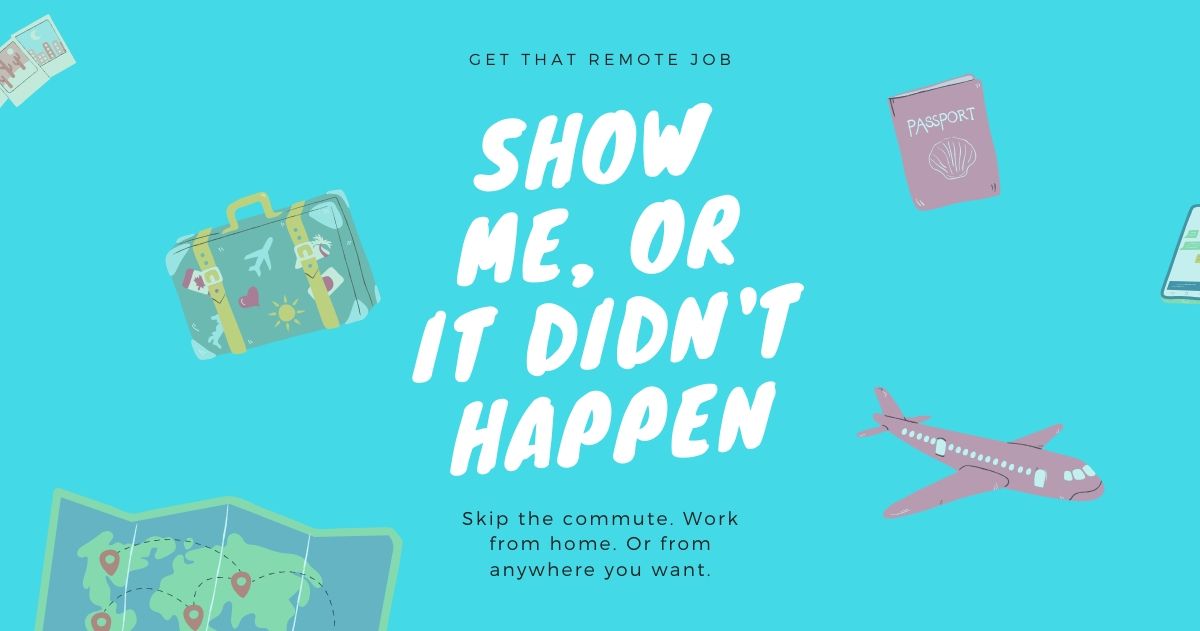This is an extract of the Get that remote job e-book. Your step-by-step guide to get a remote job in any industry. Subscribe to get it in your inbox once ready!

Learn how to get a remote job with our FREE e-book.
- How to analyze job postings to get useful data
- How to develop the required skills for a remote position
- How to market yourself online prior to applying
- How to apply for remote jobs and show you can work remotely
- A cheat sheet of the process you can keep at reach 🙂
- A list of useful apps and resources you can use in your journey
Before digging deep in remote work. Let’s start with the first thing you need to do to get a job. And that’s posting to a job opening.
Remote companies get hundreds of applications for each job opening. Basecamp, for example, got more than 1.000 applications for the Head of Marketing position. And the same numbers apply for other remote companies. All this to say, the competition in remote jobs is no joke.
I’m not saying this to frighten you. Or to tell you it’s impossible to get a remote job. I’m only telling you this as I need you to keep something in mind: Getting past the first selection is the hardest step in getting a remote job. Getting the eyes of a recruiter in a pool of hundred applications isn’t easy. But we’ll work on it.
To understand how you can get past this first step. We need to understand what remote companies are looking for. Once you know this, you can make your application stand out.
First of all, some people may use their education and/or school to standout. That’s a bad idea when posting to remote jobs. And I’ll clear this confusion for you.
I once got this question from one of the readers of Remote.ma:
Can I post to an engineer position even if I don’t hold an engineering degree?
Let’s stop here for a second and introduce the first distinction of a remote company. Remote companies do not care about your education.
If you can market things, you are a marketer. If you can write code, you are a software engineer. There is no need to show your certifications or diplomas. You’re what you do. Remote companies do not care if you are self-taught or you hold a degree. It’s the same output. So, if your resume has your education on the top, go ahead and remove it. You don’t need it for a remote company.
This leads us to a newer question. If remote companies aren’t relying on education, how do they know you’re a good fit for the company? That’s the one million dollar question we are looking for.
I’ll give you the answer right away. And if you learn something from this chapter, let it be this:
Show me, or it didn’t happen
Remote companies
That’s it. That’s what you need to know. Don’t tell me about your education and your GPA. Show me what you do. Let me see with my own eyes and I’ll decide.
For remote companies, seeing your work is way better than reading some words on a PDF file. They are curious to hear what you have to say on your blog. How you market a brand from scratch. How you manage to keep customers happy. And any useful projects you may have.
There is still another aspect of this. You can use your past experiences to show your skills. But the same lesson applies to them. If you can’t show me something you did in your past experience, then it’s not worth mentioning. Always remember, show me or it didn’t happen.
This is the first lesson in the upcoming e-book. And I want you to keep it in mind. In fact, everything we’ll do from now on is preparing you to show what you got.

